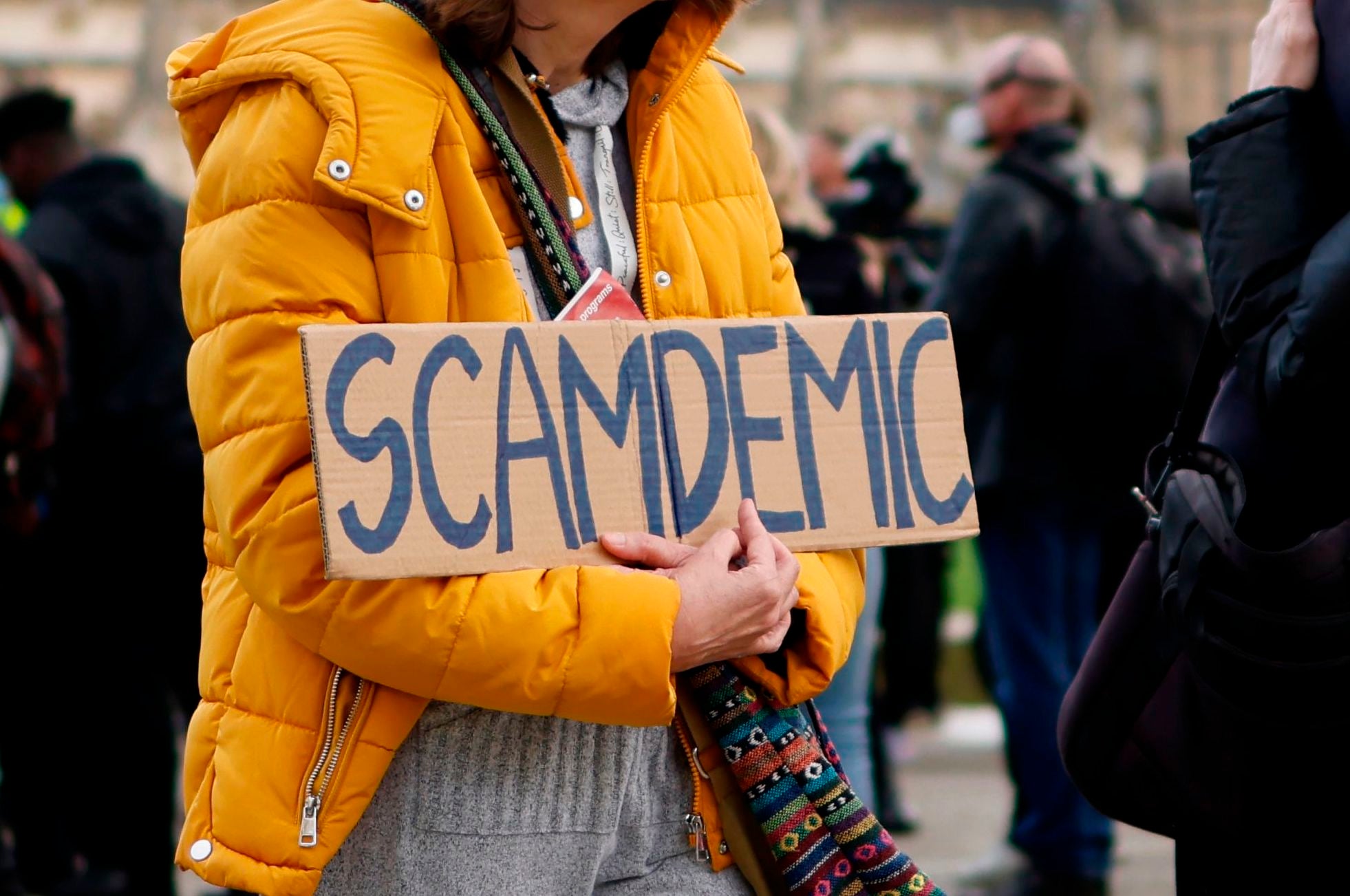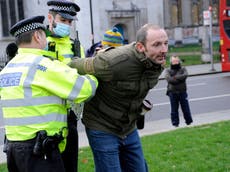As a Jewish person, I’ve experienced anti-lockdown antisemitism – it must stop
Conspiracy theorists believe coronavirus is a scam created by Jewish people, I fear another attack on my community


Your support helps us to tell the story
From reproductive rights to climate change to Big Tech, The Independent is on the ground when the story is developing. Whether it's investigating the financials of Elon Musk's pro-Trump PAC or producing our latest documentary, 'The A Word', which shines a light on the American women fighting for reproductive rights, we know how important it is to parse out the facts from the messaging.
At such a critical moment in US history, we need reporters on the ground. Your donation allows us to keep sending journalists to speak to both sides of the story.
The Independent is trusted by Americans across the entire political spectrum. And unlike many other quality news outlets, we choose not to lock Americans out of our reporting and analysis with paywalls. We believe quality journalism should be available to everyone, paid for by those who can afford it.
Your support makes all the difference.A few days ago, a mural appeared on a wall a few miles away from me, in a town outside Belfast. “Coronavirus scam”, it read. Lodged between the two words was a lazily spray-painted yellow Star of David.
I’m not to blame for the ongoing pandemic, but some people in my own community believe that I am. Because I’m Jewish.
Whenever disaster strikes, conspiracy theory tends to follow. And, wherever there is conspiracy, Jewish people have historically been scapegoated for causing, or contributing to causing, that disaster.
More than 100 years ago, my Jewish ancestors immigrated from Eastern Europe and settled in London. Antisemitism was rife on the continent at the time, and new literature, including The Protocols of the Learned Elders of Zion, was being disseminated widely. Its message began to spread across Europe, and soon, the world. Jewish people are conspiring to attempt global domination, The Protocols said.
The world’s ills are a Zionist hoax because Jewish people control the press, the government, and the economy, according to the book. They are wealthy, and they use their gold to exert authority over non-Jewish people. You get the point. The Protocols was a fabrication, a response to social ills at the time. Yet, these antisemitic conspiracies inspired pogroms, the rise of Nazism and, today, far-right organisations.
A century on, nothing has changed. This time, the antisemitic tropes merely manifest in different ways. Now, conspiracy theories spread online, reaching global pockets of the internet on forums such as 4Chan, where far-right extremists organise, and, worryingly, on mainstream sites, like Twitter. The Community Security Trust (CST), a Jewish NGO, has tracked online posts during the pandemic and found a new surge in antisemitism, caused by the conspiracy that coronavirus is a Jewish scam.
The pandemic has compelled us to change our lives to protect our loved ones and strangers. But it, too, has created an avenue for antisemitic conspiracy theorists to explore. In online spaces, according to the CST, users have branded lockdowns a hoax by Jewish people to control the public. Others have speculated on Twitter that Jewish people are financially gaining from the pandemic, through the development of a lucrative vaccine.
Last month, I saw a photo of a placard at an anti-lockdown protest in Nottingham, blaming coronavirus restrictions on “The Zionist Press” and George Soros, a Jewish philanthropist. The mural in my neighbourhood is not an isolated incident. The irrational hatred of Jewish people, and the belief that they control world affairs, is a centuries-old trope. The pandemic has given it new life.
“So what?”, some non-Jewish people have asked me.
These online conspiracies aren’t influencing public debate – at least not in the UK. Why should I care?
Conspiracy theories have material, sometimes deadly, consequences. This time, for me, it’s an antisemitic mural in my community. Knowing that my neighbours could think I’m to blame for causing the pandemic is alarming. But I count myself lucky.
In worse cases, recent antisemitic conspiracy theories have prompted extremists to physically attack Jewish people, or synagogues. In 2019, there were two fatalities at a synagogue shooting in Halle, Germany. A year prior, eleven Jewish people were shot and killed, tragically, at the Tree of Life Synagogue, in Pittsburgh, allegedly by a far-right extremist. The shooters in both incidents are said to have been radicalised by online antisemitic conspiracy theories.
While the founder of Twitter, Jack Dorsey, has claimed the app is combatting online hate, last year he apologised for allowing advertisers to target neo-Nazis on the site. Far-right organisations are legitimised when they are given space to organise online and are not condemned outright by social media regulators. In response, the government has set out a “new system of accountability and oversight for tech companies”, but it seems reluctant to take responsibility for extreme content distributed online, and is outsourcing the task to social media companies instead. On the matter, they claim they will “bring forward legislation when parliamentary time allows.”
This isn’t good enough. Hesitation to step up allows antisemitism, alongside other kinds of racism, to fester. Hope Not Hate recently reported that when prominent far-right conspiracy theorists are banned from social media sites, hundreds and thousands of people are less likely to be exposed to extremis content and conspiracy theories. But with lukewarm attempts to curb online hate by social media platforms and our government, the next attack on the Jewish community, prompted by a response to coronavirus restrictions, seems like a waiting game. Am I next? Are my family and friends safe?
The pandemic has harmed Jewish communities just like it has harmed others. It has hurt our loved ones, and indiscriminately cost thousands of lives. But, in Jewish communities, the pandemic has ignited a familiar fear. Subverting antisemitic conspiracy theories caused by the pandemic is possible. But our community leaders must act now.



